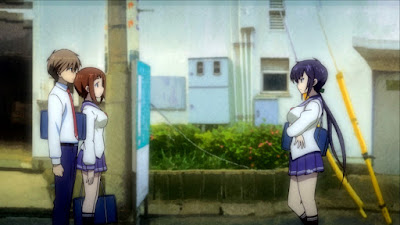Running a Convention Fan Panel
Anime and Comic conventions have events that are organized and well-planned, such as concerts, industry panels, masquerade, and a variety of others. On the other hand, a convention fan panel is done by the fans with little to no connections to industry but they share a wealth of knowledge and experience. It is one of the few aspects of Anime and Comic convention programming that the fans have strong input in. From the outside, a panel can be very intimidating, which is why there are a lot of knowledgeable and talented people who can host a panel but have not done it. This article will try to deconstruct a con fan panel to ease the learning curve to make it easier to do. Hosting panels at con is very rewarding and can be very addictive. I hope after reading this article that you can try to contribute to your favorite con by hosting fascinating and interesting panels.
Before a person can host a panel, there are two difficult questions that you have to ask yourself: what is the subject of the fan panel and who will I host the panel with? When it comes to choosing a subject for a panel, I highly suggest looking at the program guide from a huge convention like Otakon, Anime Expo, Dragon Con, or Comic Con International for inspiration. A quick glimpse of the panels in any convention shows that fan panels cover a myriad of subjects, from the popular to the very obscure. From my experience, I suggest hosting a panel that interests the person organizing it. If a person is a cosplayer, they can do a panel about making friends in the cosplay community and networking tips and tricks. If a person is a photographer, holding a panel about choosing the proper equipment and photography technique are potential panels they can run. When choosing a subject, keep in mind the niche that you are aiming for and whether the convention has a large number of people who are interested in your subject. When it comes to a panel, another important point is finding the right person to assist in hosting the panel. There are several things to consider when finding panel partners. The first consideration is if the panel partner knows the subject well. Over the course of a panel your partner will give their opinion over the course of the panel and they will also be asked during the question and answer session at the end, so knowing the subject will help them give relevant input during the panel. The second consideration is compatibility with your panel partner. A panel can go so wrong if the people running the panel cannot get along with each other and continually interrupt each other. Making sure that you get along with your panel partner goes a long way to make sure that panels run well. A great way to test compatibility is to work with them in the planning process, if you can't get along with them when it comes to planning, you will not magically become good friends in the panel. Once you have the questions of subject and panel partners, running a panel should be much easier.
The hardest part is done, but you have one of the most important parts left, submitting the panel proposal to the convention. You have to name the panel, find a date and time, and have a proper description of the panel. The name of the panel is important since it will be the first thing a person sees when they look in the program guide or a panel description on the website. It should be creative, concise, and a proper title of the panel. If a panel is on Sailor Moon influence in culture "Moon Prism Make Up! Sailor Moon and the New Revolution" sounds more interesting than "Sailor Moon's Influence on American Culture." The second is finding a date and time. If the panel is too early, cosplayers wont likely attend since it takes some time to prepare. If the panel is too late, one day attendees wont likely go since they probably will have left already. If you are going to a convention with lots of panel requests, you also need to send in multiple potential times since coming up with a programming schedule is very difficult. The last is coming up with a proper description that fits the panel. Like with the title, creative attracts more attention when people look into it. I also suggest putting your name in there in the panel description like "Kris Zoleta talks about..." When you have everything ready, you submit it to the convention and hope for the best.
Once you found a subject and a person to host with, and you have the panel submitted another important point to consider is the structure of the panel. There is a traditional structure that is used for most fan panels that in anime and comic conventions. Here is the structure that is used:
- Introduction: The panelists introduce themselves, their experience in the subject, and give a short summary of the subject of the panel.
- Main Panel Body: This is the body of the panel, where the subject is broken to important points that makes it easy to digest. The rule of thumb is that you break your subject to 3-6 main umbrella topics or themes to make it easier to understand for the general public.
- Conclusion: In this part, you wrap up the subject and tie the subject with the topics.
- Question and Answer Session: Take questions from the general public and try to answer as much as you can. If the question is not part of the subject, don't be afraid to tell them that it is off topic. If you do not know the answer, do not be afraid to admit that you don't know the answer.
- Final Wrap Up: After you have taken the last question, do the final wrap up which normally involves giving contact information to the general public if they have any extra questions. Don't forget to thank them for attending the panel.
This is a very general skeleton structure, and frankly it is up to the panelist on how they want to do it. If the panel is more interactive, having a larger question and answer session would be ideal. If it is more instructional then having a focus on the main panel body should be what is emphasized.
There are a couple of pitfalls that can really derail a panel; I will give you what those pitfalls are and strategies to deal with it:
- Pitfall #1 Panelists who ramble: The problem with people who are knowledgeable is that they can sometimes give a huge amount of information in a small amount of time. They can ramble on and on about a topic and it can really suck the energy of the room. Strategy to deal with it: put a timer on each answer to ensure that a subject can be wrapped up quickly.
- Pitfall #2 Panelists going off topic: Sometimes a panelists may go off on a tangent (ex: panel on gender bending and then complaining about piracy of manga). This can happen especially when the off topic point is tangentially related to the main subject. Strategy to deal with it: Have a powerpoint ready or have a printout of bullet points for the panel.
- Pitfall #3 Too many questions from one person: During the Question and Answer session, there may be a person who asks many questions about the subject. As they ask question after question, they start grating on the nerves of the people behind them. Strategy to deal with it: Establish a limit of one question per person or be assertive in telling someone that they have a line of people behind them.
- Pitfall #4 Cold feet: It is a fact, more people are afraid of speaking in public than of death. Even the most hardened public speaker will get the jitters before a panel. Getting nervous can have an adverse effect on your presentation. Strategy to deal with it: Getting nervous is natural, get that nervous energy out. Run in place for a couple of seconds, stretch in place, or shake it off. Do whatever it takes to get used to the crowd. Before the panel starts, you can start interacting with the crowd and try to get them energized. Once they are excited, the nervous energy can start melting away.
There are many more pitfalls that can derail a panel, the most important thing is that you have to consider that anything can happen and that you have to plan for it. If your computer cannot connect to the projector, have printouts ready. If the mics aren't working, use your outdoor voice and stand with the audience. If you have quiet audience that is unresponsive, try to connect with them.
Running a fan panel is difficult and takes lots of energy and planning. It is also immensely rewarding and lots of fun. The first thing you have to consider in a panel is subject and panel partners. After that, you need to find a logical structure to run your panel and try to make it compelling enough to hold their attention. Before you submit your panel proposal to the convention, you have to consider a name, date and time, and a descriptor that is interesting. When you run the panel, you have to consider potential pitfalls that can really slow down your panel. One of the big complaints I see at most conventions is that the panels are not interesting. Instead of complaining about the quality of the panels, take control and do a panel yourself. Doing a fan panel also means you take ownership in the programming of the convention. I hope that this demystifies fan panels and get you interested in running them yourself.
Kris Zoleta started working in Anime Expo as a staffer in Manga Library. He worked in Staff Service in Anime Expo 2006 and became the manager of Manga Lounge from Anime Expo 2007-2010. He is currently serving on the Board of Directors for the Society for the Promotion of Japanese Animation, the 501(c)(6) non-profit behind Anime Expo and is one of the most recognized cosplay photographers in the West Coast.







Comments